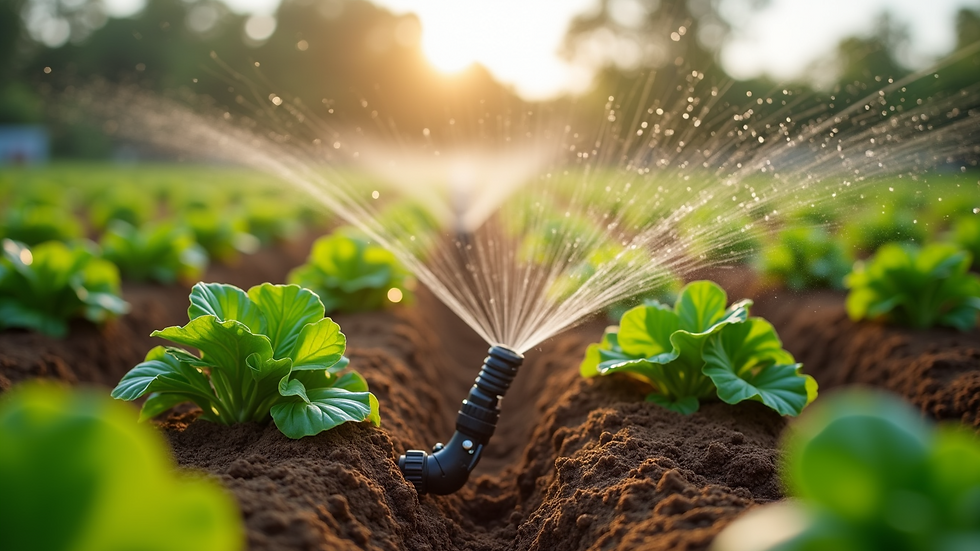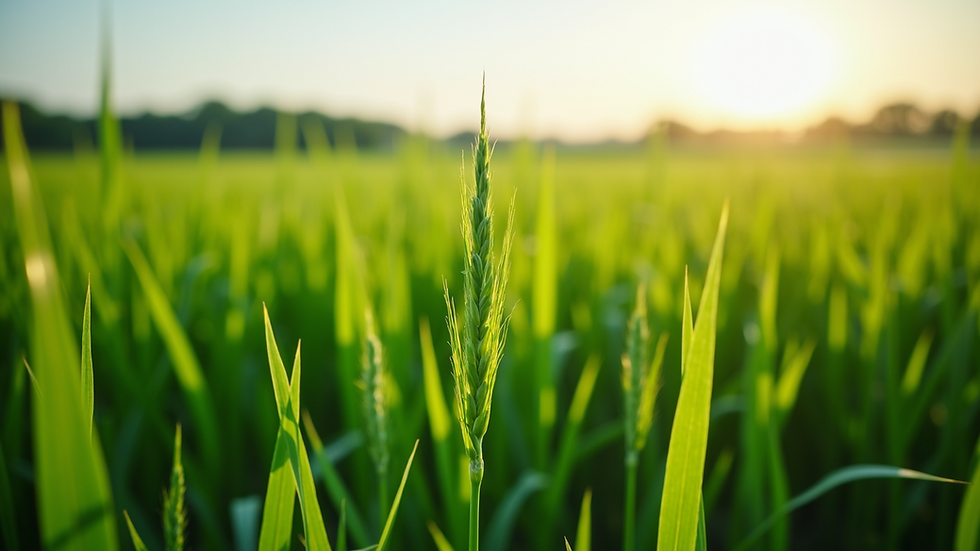Eco-Friendly Methods to Improve Your Farm
- Ayush Patel
- Sep 22, 2025
- 3 min read
Farming is more than just a job - it’s a way of life. And as stewards of the land, we have a responsibility to care for it wisely. Over the years, I’ve learned that adopting eco-friendly farming methods not only benefits the environment but also boosts the health and productivity of the farm. It’s a win-win that feels good in every sense. If you’re looking to make your farm greener and more sustainable, I’m here to share some practical, down-to-earth tips that you can start using today.
Embracing Eco-Friendly Farming Methods
Switching to eco-friendly farming methods might sound like a big leap, but it’s really about making thoughtful choices that work with nature, not against it. These methods help reduce waste, conserve water, and improve soil health. Here are some of the key practices I’ve found effective:
Crop Rotation: Changing the types of crops you plant in a particular field each season helps prevent soil depletion and reduces pest buildup. For example, planting legumes after cereals can naturally replenish nitrogen in the soil.
Composting: Instead of throwing away organic waste, turn it into nutrient-rich compost. This not only cuts down on landfill waste but also feeds your soil with natural fertilizers.
Integrated Pest Management (IPM): Use natural predators, crop diversity, and minimal chemical inputs to keep pests in check. This approach protects beneficial insects and reduces harmful pesticide use.
Water Conservation: Techniques like drip irrigation and rainwater harvesting ensure your crops get the water they need without waste.
Cover Cropping: Planting cover crops during off-seasons protects the soil from erosion, improves soil structure, and suppresses weeds.
These methods are not just good for the planet; they also help your farm thrive by building a resilient ecosystem.

What do you mean by sustainable agriculture practices?
When I talk about sustainable agriculture practices, I’m referring to farming techniques that meet today’s food needs without compromising the ability of future generations to do the same. It’s about balance - nurturing the land, water, and biodiversity while producing healthy crops.
Sustainable agriculture practices focus on:
Long-term soil health: Avoiding practices that degrade soil and instead building organic matter and fertility.
Efficient resource use: Minimizing water, energy, and chemical inputs.
Biodiversity: Encouraging a variety of plants and animals to create a stable ecosystem.
Economic viability: Ensuring farming remains profitable and supports local communities.
If you want to dive deeper into these methods, I recommend checking out sustainable agriculture practices for more insights and resources.

Practical Steps to Implement Eco-Friendly Methods on Your Farm
Starting small can lead to big changes. Here are some actionable steps you can take right now:
Test Your Soil: Understanding your soil’s current condition helps you decide what amendments it needs. Many local agricultural offices offer affordable soil testing.
Start Composting: Set up a compost bin or pile near your farm. Use kitchen scraps, crop residues, and manure to create rich compost.
Plant Cover Crops: Choose cover crops suited to your climate and soil. Legumes, clover, and rye are popular options.
Install Drip Irrigation: This system delivers water directly to plant roots, reducing evaporation and runoff.
Encourage Beneficial Insects: Plant flowering herbs and native plants to attract pollinators and natural pest controllers.
Reduce Chemical Use: Gradually replace synthetic fertilizers and pesticides with organic alternatives and natural pest control methods.
Remember, every small step counts. You don’t have to overhaul your entire farm overnight. Start with one or two changes and build from there.

The Benefits You Can Expect
Adopting eco-friendly farming methods brings a host of benefits that go beyond just the environment:
Healthier Soil: Rich, living soil supports stronger plants and better yields.
Lower Costs: Reducing chemical inputs and water use saves money.
Resilience to Climate Change: Diverse crops and healthy soil help your farm withstand droughts and floods.
Better Quality Produce: Crops grown with natural methods often taste better and have higher nutritional value.
Community Support: Eco-friendly farms often attract customers who value sustainability, opening new market opportunities.
I’ve seen firsthand how these benefits create a positive cycle - healthier land leads to better crops, which leads to a more sustainable livelihood.
Growing Together for a Greener Future
Farming is a journey, and every farm is unique. What works for one might need tweaking for another. The key is to stay curious, keep learning, and be patient with the process. By embracing eco-friendly farming methods, we’re not just improving our farms - we’re nurturing the earth that feeds us all.
If you’re ready to take the next step, start by exploring resources, connecting with other farmers, and experimenting with new techniques. Together, we can cultivate a future where farming and nature thrive side by side.
Let’s grow greener, one seed at a time.




Comments